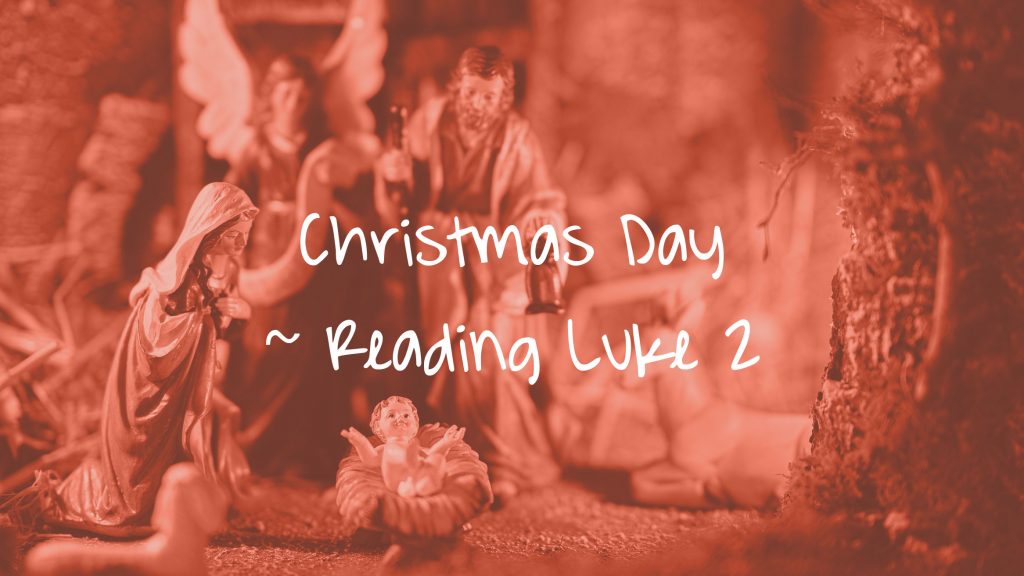Luke’s account of the birth of Jesus is read often at Christmas.
We don’t read Matthew’s narrative, as it is rather short, “Now after Jesus was born in Bethlehem of Judea in the days of Herod the King…”
Informative but lacking descriptive depth. Christmas specials need more than a few words to describe the birth of Jesus. How can the children’s Christmas pageant be overly long by reading Matthew’s account?
We don’t read Mark’s account either. Why? This gospel narrative doesn’t have one. I’ve never completely understood why Mark begins his gospel with a quote from Isaiah then immediately introduces John the Baptist.
He probably didn’t have a good editor who understood social media and the need to have a manger scene providing content for painters like Rembrandt.
Sometimes the Gospel of John is read. A personal confession from me: One Christmas Eve, I read John 1 instead of Luke 2. Only once! Then I was encouraged by the elders, the congregation, and my wife to be more traditional.
I still think “The Word became flesh and dwelt among us (John 1:14) has great insight but admittedly, not as much audience appeal as “There were shepherds keeping watch over their flock by night.”
Please read Luke 2 sometime today, on Christmas day, with your family. Below are my reading guidelines.
First, there are two ways to read Luke 2.
The long version from verses 1 to 16 – which includes Quirinius, the census of Caesar Augustus, Bethlehem, swaddling cloths, and no room in the inn.
The shorter version from verses 8 to 16. It doesn’t include all the facts but does include the basics of angels, shepherds, manger, along with Mary, Joseph, and baby Jesus.
Second, if you read the longer version, learn to pronounce Quirinius!
The longer section loses impact if the reader stumbles over this word and says, “Duh, I wish Pastor Rick Ives was here to read this as he would know how to pronounce this word.” (See footnote explaining Rick Ives.)
Let’s give it a try – Kwer-win-ious. You got it!
If you read Quirinius confidently without hesitation, everyone will think you are a scholar! Since they don’t know how to pronounce the word either, a bold proclamation by you will get you voted as the reader for the next decade.
Third, consider the setting.
If you are reading Luke 2 as you sit down at the Christmas table, sort of a prelim to devouring victuals, I’d go with the shorter version of Luke 2.
I honestly believe those waiting to eat turkey, steak, cranberry sauce, venison, shrimp, mashed potatoes, green beans, butter rolls, jam, oyster dressing, rutabaga, cherry pie, chocolate pie, mincemeat pie, pecan pie, and grandma’s corn casserole…
will not want the longer version!
And don’t read either the longer or the shorter version right before children, parents, and grandparents open presents. Be considerate of their desires as everyone imagines gifts beyond wildest dreams and budgets.
Fourth, plan.
Luke 2 says, “Peace on earth.”
Don’t ruin the peace by reading Luke 2 just before opening presents or while everyone is salivating before dinner.
Let everyone know in advance when you will read Luke 2. I would suggest standing in a circle before dinner, before opening presents, and before people begin taking naps.
You can read either the long or the short version but if you read the long version…
remember… Kwer-win-ious.
Promised endnote: Pastor Rick Ives is an amazing pastor living in Springfield, Ohio, who learned the correct pronunciation of Quirinius from his wonderful wife, Heather. Ask him to come to your Christmas dinner next year and the next.
Merry Christmas!

